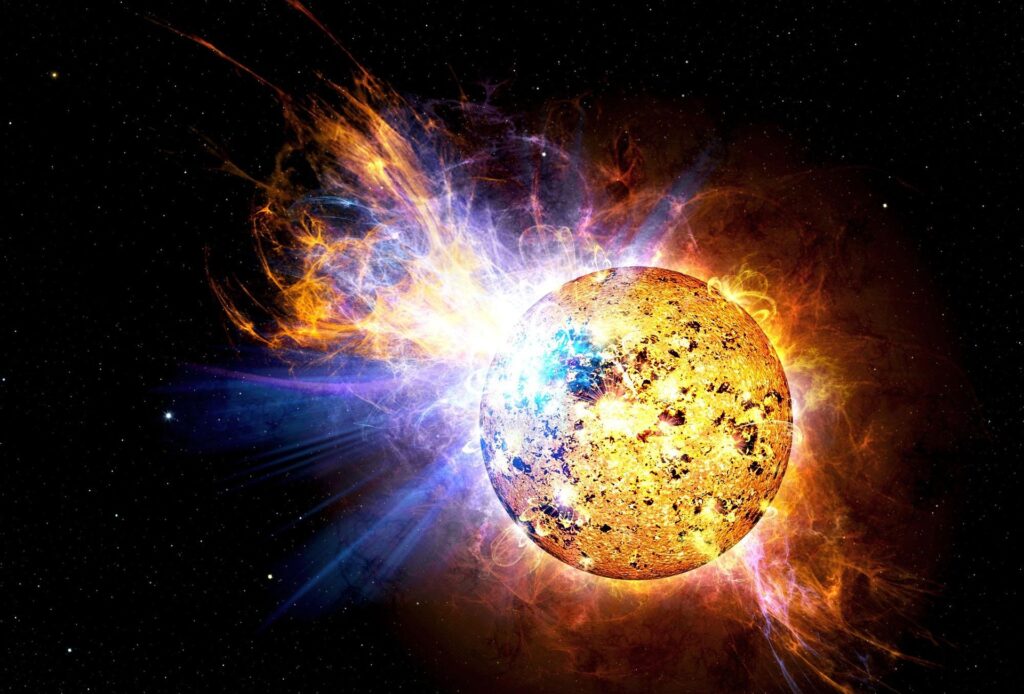Solar power is the best power source because it is a renewable energy source that does not produce any harmful emissions. Solar energy is also abundant and free, making it an ideal choice for powering homes and businesses. Solar panels are easy to install and require little maintenance, making them a cost-effective option for many people.
Additionally, solar energy can be used to generate electricity, heat water, and even provide cooling in some cases. Finally, solar power can be used in remote locations where other forms of energy may not be available. All of these factors make solar power the best power source for many applications.

Is solar energy better than nuclear?
The advantages of solar power and nuclear power:
The debate over which energy source is better, solar or nuclear, is a complex one. Solar energy has the potential to be a clean and renewable source of energy, while nuclear power can provide large amounts of energy with relatively low emissions. Ultimately, the choice between solar and nuclear depends on the specific needs of each situation.
Solar energy has several advantages over nuclear power. It is a renewable resource that does not produce any harmful emissions or waste products. Solar energy is also relatively easy to install and maintain, making it an attractive option for many people. Additionally, solar panels can be used to generate electricity in remote areas where access to other forms of energy may be limited.
On the other hand, nuclear power has its own advantages over solar energy. Nuclear power plants are capable of producing large amounts of electricity with relatively low emissions compared to other sources of energy such as coal or natural gas.
Additionally, nuclear power plants are more efficient than solar panels in terms of generating electricity from the same amount of fuel. Finally, nuclear power plants have a much longer lifespan than solar panels, meaning they can provide reliable electricity for decades without needing to be replaced or upgraded.
solar power vs nuclear power cost:
When it comes to energy production, solar power and nuclear power are two of the most popular options. Both have their advantages and disadvantages, but one of the main differences between them is cost. Solar power is generally cheaper than nuclear power in terms of upfront costs and long-term maintenance costs. Solar power requires less capital investment than nuclear power. Solar panels are relatively inexpensive to install and maintain, while nuclear plants require a large initial investment and ongoing maintenance costs.
Additionally, solar energy is free once the panels are installed, while nuclear energy requires fuel that must be purchased. This makes solar energy more cost-effective in the long run.
Nuclear power does have some advantages over solar power when it comes to cost. Nuclear plants can produce more electricity than solar panels, so they may be a better option for large-scale projects or areas with high electricity demand. Additionally, nuclear plants have a longer lifespan than solar panels, so they may be a better option for long-term investments.
How many solar panels equal a nuclear power plant?
It is impossible to compare the output of a nuclear power plant to that of solar panels. A single nuclear power plant can generate up to 1,000 megawatts of electricity, while a single solar panel can generate only a few watts. To equal the output of a nuclear power plant, you would need hundreds of thousands of solar panels. The exact number would depend on the size and efficiency of the solar panels used. Additionally, the amount of sunlight available in the area would also affect how many solar panels are needed to equal the output of a nuclear power plant.
Is solar power safer than nuclear?
Solar power is generally considered to be much safer than nuclear power. Solar energy does not produce any hazardous waste, unlike nuclear energy, which produces radioactive waste that must be safely stored for thousands of years. Solar energy also does not produce any air or water pollution, while nuclear power plants can release radioactive materials into the environment if there is an accident or malfunction. Additionally, solar energy does not require the use of large amounts of water for cooling purposes like nuclear power plants do.
Solar energy is also much less expensive than nuclear energy in terms of upfront costs and long-term maintenance costs. Solar panels are relatively inexpensive to install and require minimal maintenance over their lifetime, while nuclear power plants are extremely expensive to build and maintain. Overall, solar power is a much safer and more cost-effective alternative to nuclear power. It produces no hazardous waste or air or water pollution, and it requires minimal upfront and long-term costs.
Conclusion:
Solar power is a renewable energy source that is becoming increasingly popular as an alternative to traditional energy sources. Solar power is better for the future because it is clean, abundant, and cost-effective. Solar energy does not produce any air or water pollution, and it does not require the burning of fossil fuels. Additionally, solar energy can be used in remote areas where access to traditional energy sources may be limited or unavailable. Finally, solar power can be cost-effective over time due to its low maintenance costs and long lifespan.
Solar power has the potential to reduce our dependence on fossil fuels and help us transition to a more sustainable future. By using solar energy instead of traditional sources of energy, we can reduce our carbon footprint and help mitigate climate change. Additionally, solar power can provide reliable electricity in areas where access to traditional sources of electricity may be limited or unavailable. This could help improve the quality of life for people living in these areas by providing them with access to electricity for basic needs such as lighting and cooking. Overall, solar power is better for the future because it is clean, abundant, and cost-effective. It has the potential to reduce our dependence on fossil fuels and help us transition to a more sustainable future while also providing reliable electricity in remote areas.
